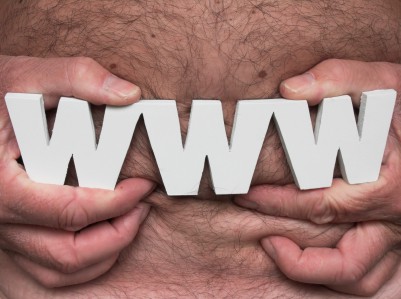Obese people get a raw deal these days. Everywhere you look there’s advice on slimming down, diets, pictures of thin models or muscle-toned hunks. Yet the country is in the grip of a weight pandemic with predictions that 60% of the population will be obese by 2050. Today new research shows that thinner people reckon they are superior to those of us who are overweight. And that, believe it or not, signals a major problem for website owners and online businesses.

The study from Belgium showed that when normal weight people were due to meet someone who was overweight, the normal weight person felt more positive, more empowered and of higher status than the overweight individual. According to the researchers this is all about perception. If society is making us “think thin” we perceive obesity and being overweight as negative and thereby, if we are not overweight, then we see ourselves as positive.
Now, as interesting as this may be, the research is published at the same time as a paper from the University of Amsterdam which shows that thinking is improved when someone has a heavy clipboard for their work, compared with a light clipboard. Also, when they held a heavy clipboard they thought it was worth more than a light one (even if this were not true). In other words, weight of objects is perceived positively. The heavier they are the more valuable we reckon they are. It is the reverse perception we have of people, it seems.
Book publishers will tell you that if they increase the type size a bit, add some extra margins and maybe a few blank pages for “notes” at the end of a book they will have increased the book’s weight and thickness quite a bit. The result is they are able to sell it for a much higher price than the same book with fewer pages. Witness hardback prices versus paperbacks. The content, though, is not changed. And it is only the content you are really paying for in a book. People are prepared to pay more for a thicker version of the same content – the heavier version – than they are the thin version. The Encyclopaedia Britannica will set you back £1,195 if you want the printed version, whereas the same thing on a tiny CD will only be £40. The content is the same – the only real difference is the weight of the object.
Human beings are very weight conscious. We “weigh things by the pound”. If it is an object and it’s heavy we reckon it’s valuable. If it’s a person and it’s heavy we reckon we are more valuable (assuming we are lighter). Online this has important repercussions for website owners and online businesses.
Our obsession with weight translates into an assessment of how “fat” a website is. If it isn’t very fat and doesn’t have many pages we believe it is less valuable to us than a site with loads and loads of pages. It means that if your website is thin, the perception is that it is less valuable than a site offering the same information, but which is fat. The total number of pages your website has is of real importance to your visitors; they want to see a really big site. They may only engage with a couple of pages, but if your site is not obese they may not engage at all.
Online you shouldn’t “think thin”, you should “think fat” and constantly add pages to your website day in, day out. People are judging your website by its size. Unlike the way we judge people, if your website is really fat, people will have a positive reaction. You need more pages – lots of them. Now, where’s my slimming pills?

